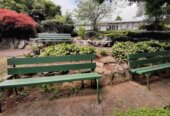By Peter Carr
Those who have had the benefit of spare time may well have attended (as the public) meetings of the local council. Not, I hasten to add, just the Waipā Council but any of the 72-or-so councils up and down the country, and witnessed the breath-taking rapier wit, parry and thrust of the proceedings. And just when it is getting sexy – or at least a little bit interesting – listening with dismay as the chair of the gathering announces that the deeper discussion will go forward under ‘public excluded’.
In my earlier days of being elected to a public body in Wellington I used to fight the chairman when this weighty dictum was uttered but usually lost the argument. And then the ‘public’ – a lone local newspaper junior reporter – was slung out of the magnificent room in which we conducted the meetings. Luckily sensible legislation in 1989 changed that and a commercial board was appointed.
But on that same sensible date – as far as district or city councils were concerned – there came into being the layer (lower layer) of community boards. They often comprised wannabe councillors who, initially, were possibly never going to make it at the Big Table. They were perceived as lightweights but, nevertheless, with a burning desire to serve the community and hopefully wait for a slot to open when a long-serving councillor, having received their shiny gong, had slunk off into the ether to reflect on the good to which they had contributed. Lest I offend someone, this is not always the case, and I am happy to call some ex-councillors my friend and they have my deep respect.
The reason for this diatribe is that last week there emerged an anguished howl from the chairs of the two (Waipā) community boards when faced with the aftermath of an alleged (secret) council meeting where their likelihood of an early political demise was discussed.
Now I have always understood that community boards were in place to enable Joe Public to put forward ideas, observations in the hope that they would find fertile ground with the mayor and elected colleagues.
The web site of Local Government New Zealand has a six-pronged description of the Community Board role of which the lead one states – ‘represent and act as an advocate for the interests of the community’.
In Cambridge each meeting commences with a period where any member of the community may address the board on any subject matter that they feel should have greater involvement or interest of the full council. It’s a very fair and open proceeding where attendees are treated with courtesy while being given an opportunity to be heard. In my case I have only used this machinery twice – both with positive and rewarding success. Try that at a council meeting and it will be squashed by the heavy-handed bureaucracy that sits around the edge of the room.
My point is this. If the community boards are to be removed and replaced with some form of council sub-committee their interface with the public – and subsequent effectiveness – will be lost. What is also very important is that the ability for (future) elected councillors to sharpen their teeth and wits in the local government scene, prior to reaching the main table, will dissipate, wither and die.









